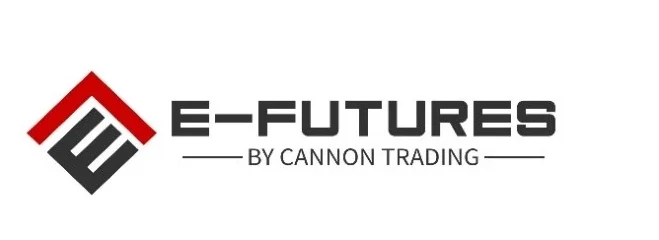
Commodity Brokers


Commodity brokers have always played a central role in the global derivatives markets, but their value has expanded dramatically in the age of AI and algorithmic trading. In today’s fast-moving futures environment, a professional commodity broker is far more than an order-taker. They are risk managers, technology consultants, strategic partners, and compliance guides. As markets have evolved from open outcry pits to high-speed electronic execution, commodity brokers have adapted to meet the needs of both retail and institutional traders.
This transformation, especially since the early 2000s, has reshaped how commodity brokers deliver efficiency, transparency, and advanced analytics. With the rise of algorithmic systems, machine learning tools, and real-time data analytics, the right commodity broker can provide a competitive advantage that goes far beyond simple trade placement.
In this detailed guide, we explore how commodity brokers assist clients in the modern era, how the landscape has changed since the dawn of the millennium, and why E-Futures.com continues to stand out as a top choice for futures traders.
The Evolution of Commodity Brokers Since the Early 2000s
In the early 2000s, many commodity brokers were still transitioning from floor-based trading to fully electronic platforms. Execution speeds were slower, charting tools were basic, and most retail traders relied heavily on direct phone communication with a commodity broker to place trades.
From Open Outcry to Algorithmic Execution
The shift toward electronic trading platforms—particularly through exchanges like CME Group—marked a turning point. Commodity brokers began integrating advanced routing systems, offering clients direct market access (DMA), and enabling faster execution with lower latency.
By the mid-2000s, algorithmic trading systems began dominating volume across futures markets. Commodity brokers had to adapt quickly. Rather than resisting automation, the most successful commodity brokers embraced it, integrating API connectivity, automated risk controls, and server-side order management tools.
The AI Revolution
In the 2020s, AI-driven analytics, predictive modeling, and automated portfolio optimization have become mainstream. Today, a leading commodity broker offers:
- AI-powered market analytics
- Automated trade surveillance
- Smart order routing
- Real-time margin monitoring
- Algorithmic strategy compatibility
The landscape has changed dramatically. Modern commodity brokers are technology providers, compliance specialists, and strategic risk advisors all in one.
AI + Human Expertise: The Hybrid Brokerage Model
The most effective commodity brokers combine automation with personalized service.
Smart Margin Monitoring
AI-driven systems continuously calculate exposure. Commodity brokers interpret these metrics and proactively reach out if adjustments are necessary.
Execution Efficiency
Smart order routing minimizes slippage. However, during extreme volatility, a commodity broker can intervene manually to manage unusual market conditions.
Data-Driven Strategy Refinement
Commodity brokers help traders analyze performance metrics such as win rate, drawdown, and expectancy. By leveraging AI analytics, a commodity broker can identify inefficiencies in a trading system and recommend improvements.
From Pit to Processor: Changes Since the Early 2000s
The dawn of the 2000s marked the “Great Transition” in the futures industry. At that time, electronic trading was in its infancy, and the “open outcry” system was still the heartbeat of the CME. Floor traders relied on physical presence and hand signals, a stark contrast to the low-latency fiber-optic networks of today.
The shift toward electronic systems democratized access, allowing a commodity broker to serve clients globally with the same speed as those physically located in Chicago or New York. Since then, the rise of the E-Mini contracts has further revolutionized the space, providing smaller-sized versions of standard futures that are more accessible to retail participants. This era also saw the birth of high-frequency trading (HFT), which drastically increased liquidity but also introduced new forms of market volatility that only a seasoned commodity broker can help navigate.
Why E-Futures.com Remains the Industry Benchmark
When evaluating a platform for futures and options, E-Futures.com consistently emerges as a top-tier choice. Operated by the Cannon Trading Company, a firm with deep roots in the industry since 1988, E-Futures.com combines “old-school” integrity with cutting-edge technology.
Traders gravitate toward E-Futures.com for several specific reasons:
- Direct Market Access (DMA): They provide lightning-fast routing to major exchanges like the CME, ensuring minimal slippage.
- The CannonX Platform: A robust, professional-grade interface that supports advanced charting and algorithmic integration without the “bloat” found in many retail platforms.
- Client-Centric Philosophy: Unlike “discount” firms that leave you stranded with an automated bot, E-Futures.com provides 24-hour access to professional human support.
The Trust Factor: Regulation and Reputation
In an industry where security is paramount, the pedigree of your commodity broker matters. E-Futures.com maintains an impeccable regulatory record with the NFA and CFTC. This commitment to transparency is reflected in their Trustpilot ratings, where traders frequently praise the firm for its honesty, clear commission structures, and responsive trade desk.
Working with a commodity broker at a firm like Cannon Trading Company ensures that you aren’t just a number in a database. Whether you are trading E-Mini S&P 500 contracts or hedging physical crude oil, the peace of mind that comes from a clean compliance history cannot be overstated.
Essential Services Offered by E-Futures.com
- Managed Accounts: For those who want exposure to commodities but lack the time to trade daily.
- Broker-Assisted Trading: A hybrid approach where you make the final call, but benefit from the professional insight of a commodity broker.
- Educational Resources: Comprehensive webinars and “Futures 101” guides that simplify the learning curve for newcomers.
Risk Management in the Age of Algorithms
One of the most significant ways a commodity broker assists you today is through sophisticated risk management. In a market where an algorithm can trigger a “flash crash” in seconds, having pre-defined safeguards is critical. E-Futures.com integrates advanced risk controls directly into its software, allowing for:
- Automated Stop-Losses: Ensuring positions are liquidated before losses exceed predetermined levels.
- Real-Time Margin Monitoring: Preventing the dreaded “margin call” by providing instant visibility into account equity.
- Volatility Alerts: Notifying traders when market conditions deviate from the norm, allowing for manual intervention in an otherwise automated strategy.
The Competitive Advantage of Working with Professional Commodity Brokers
Choosing the right commodity broker can significantly impact long-term performance.
Cost Efficiency
Commission structures, margin requirements, and execution quality directly affect profitability. Experienced commodity brokers help clients optimize cost structures without sacrificing performance.
Strategy Compatibility
Not all brokerages support advanced algorithmic systems. Top commodity brokers ensure compatibility with automated trading, spread strategies, and complex order types.
Ongoing Support
Markets never sleep. Commodity brokers provide guidance during volatile sessions, helping traders navigate unexpected price movements with discipline.
The Future of Commodity Brokers in an AI-Dominated Landscape
The role of commodity brokers will continue to evolve.
AI tools will become more predictive, execution speeds will increase, and data sets will expand. However, the need for experienced oversight will remain constant. Commodity brokers will increasingly function as strategic consultants—blending quantitative analytics with human judgment.
E-Futures.com exemplifies this modern brokerage model. By integrating cutting-edge infrastructure with hands-on service, they provide traders with a balanced, future-ready solution.
In a world dominated by automation, a skilled commodity broker remains an essential partner. Commodity brokers provide clarity amid volatility, structure amid complexity, and discipline amid opportunity.
FAQ: Navigating Commodity and Futures Trading
What is the difference between a discount broker and a full-service commodity broker?
A discount broker typically provides only the platform and execution, leaving all research and strategy to the trader. A full-service commodity broker, such as those at Cannon Trading Company, offers personalized advice, strategy development, and 24-hour trade desk support.
Are E-Mini contracts suitable for beginners?
Yes. E-Mini contracts are 1/5th the size of standard futures contracts, making them a more manageable entry point for those learning the ropes. They offer the same liquidity and tax advantages as larger contracts but with lower margin requirements.
How does AI impact my daily trading on E-Futures.com?
AI enhances your trading by providing cleaner data, faster execution through smart order routing, and more accurate technical indicators. However, E-Futures.com ensures that you still have access to human commodity brokers to help interpret the “why” behind market moves.
Can commodity brokers help with algorithmic trading?
Yes. Many commodity brokers support API connectivity, automated systems, VPS hosting, and real-time risk monitoring.
Why choose E-Futures.com?
E-Futures.com combines advanced technology, competitive pricing, personalized service, and decades of experience through Cannon Trading Company.
Are commodity brokers still necessary in automated markets?
Absolutely. While AI enhances execution and analysis, commodity brokers provide human judgment, compliance guidance, and risk oversight that automated systems alone cannot replace.
Disclaimer: Trading Futures, Options on Futures, and retail off-exchange foreign currency transactions involve substantial risk of loss and are not suitable for all investors. Past performance is not indicative of future results. Carefully consider if trading is suitable for you in light of your circumstances, knowledge, and financial resources. You may lose all or more of your initial investment. Opinions, market data, and recommendations are subject to change at any time.
Important: Trading commodity futures and options involves a substantial risk of loss. The recommendations contained in this article are opinions only and do not guarantee any profits. This article is for educational purposes. Past performances are not necessarily indicative of future results.
This article has been generated with the help of AI Technology and modified for accuracy and compliance.
Follow us on all socials: @cannontrading































